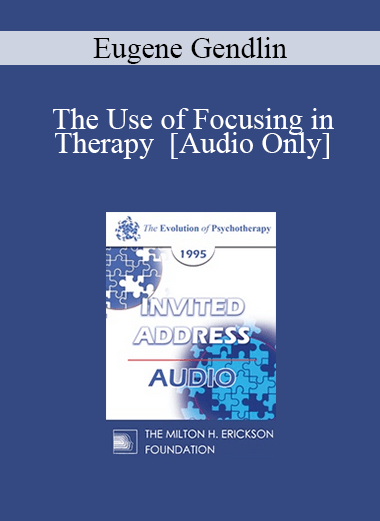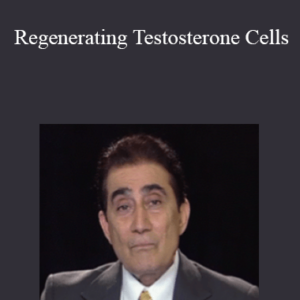- Topic Areas:
- Invited Address
- Category:
- Evolution of Psychotherapy | Evolution of Psychotherapy 1995
- Faculty:
- Eugene Gendlin, PhD | James Hillman, PhD
- Duration:
- 1 Hour 27 Minutes
- Format:
- Audio Only
- Original Program Date :
- Dec 16, 1995
Description
Description:
Invited Address Session 9 Part 2 from the Evolution of Psychotherapy 1995 – The Use of Focusing in Therapy
Featuring Eugene Gendlin, PhD; with discussant James Hillman, PhD.
Moderated by Carol Kershaw, EdD.
Focusing is bodily attention, not to mere sensations but to an at first unclear, implicitly complex bodily sense-of a situation, problem, or aspect of life. Therapy deepens immediately with many clients if asked what physical sense comes in the middle of the body in relation to what is being worked on. With half a minute of repeated direct attention, clients can assign a “quality-word,” e.g., “heavy,” “fluttery,” or “tight.” Then small steps come to say the crux of the problem. Each brings a slight (later large) “shift” and release, a direct sense of validity, although further steps may again change the whole problem. Without disrupting the hour, most clients who cannot do this, can gradually learn it from small questions now and then, such as “What comes in your body?” “Is it heavy, fluttery or how?” and “Stay a little while with that sense. Can you let it come again?” The bodily sense-of an implicit complexity is not widely known.
Educational Objectives:
- To describe basic issues in psychological change.
- To illustrate the basic role of the body in change process due to bodily sensing of situations, not only body as such.
- To describe a new way to access this role within the psychotherapy frame as well as otherwise.
*Sessions may be edited for content and to preserve confidentiality*







